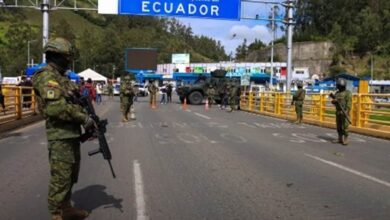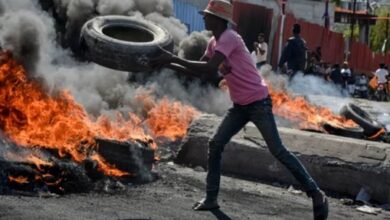Soccer, a passion that takes over the small screen
Here you can find some of the most famous soccer series that will allow you to immerse yourself in this sporting world

Leer en español: El fútbol, una pasión que se toma la pantalla chica
For decades there have been produced films whose central theme is soccer. Among them are Green Street Hooligans, Rudo and Cursi, Metegol, the trilogy of Goal! and Chanfle. However, with the boom of streaming and its large producers, soccer has taken over the small screen. The ABC newspaper highlights the rise of biographical series. This is where soccer has a place, on that border between reality and fiction, through documentaries, unpublished and biographical stories at the same time. The series allows you to know about great athletes or clubs, as well as their achievements and their problems. Here you can find a list of some of the most famous series about soccer:
O11CE (Disney Channel Latin America, 2017) 3 seasons
This Argentinean teen series portrays the story of Gabo, a young man who dreams of becoming a soccer player with the help of the Halcones, an important soccer club in Buenos Aires. The story takes place in the midst of a rivalry similar to that of Lionel Messi and Cristiano Ronaldo. In the third season a new character, a Colombian footballer played by Daniel Patiño, also known as PaisaVlogs, who reinforces the team, according to information from Publimetro.
Club de Cuervos (Netflix, 2015) 3 seasons
This is a Mexican comedy about the fictional soccer club Los Cuervos de Nuevo Toledo and the first Spanish-language series produced by Netflix. The program deals with the family problems of the new owners of the team, the Churches, after the death of their father and their struggle to bring the team forward. Here you can get to know all about the difficulties of maintaining a club, especially when you have no experience. Its success has given rise to a spin-off entitled La balada de Hugo Sánchez that was released after the soccer match between Mexico and Germany of the 2018 World Cup in Russia, according to the newspaper Excélsior.
First team: Juventus (Netflix, 2018) 2 seasons
As Marca Claro explains, this is a documentary series about the 2017-2018 season of Juventus. This program is an immersion to what happens around the sport, entering different facilities, to the training and to the pressure that is experienced in a club of those dimensions. It is a window to Calcio and its historical players.
You may be interested in: Latin America: This is the panorama of the female soccer leagues
Todo por el juego (DirecTV, 2018) 1 season
This recently released series addresses the threads of the mafia and the dark deals of soccer. According to La Nación of Argentina, the story revolves around Mariano Hidalgo, a businessman who is passionate about his team who has problems with management and resources. The program is based on the novel El fútbol no es así by Javier Tebas and Pedro Torréns Otín.
The Kicks (Amazon, 2015) 1 season
Devin Burke is a young star of soccer that must face the challenges of any footballer in terms of training, as well as the difficulties of being a woman in a sport dominated by men and with different opportunities. According to the New York Times, the series is based on the book The Kicks written by Alex Morgan, star player of the United States.
All or Nothing: Manchester City (Amazon, 2018) 1 season
Documentary series that will be released on August 17. According to the newspaper The Mirror, it will be similar to First team: Juventus, that is, tells the story of the day-to-day of the team to reveal to the fans the secrets of its club and its idols. Much of the follow-up focuses on Pep Guardiola as the English club's success strategist who broke the record of the 100 points in the Premier League.
¿Y dónde es el partido? (Mnesia Films, Señal Colombia, 2018)
Series of eight chapters that, according to El Tiempo, tells the story of rural Colombia, linked to football and violence. The producer Andrés Orozco said that he seeks to show that soccer is practiced in every corner of the country and that it is a way of healing in the midst of adversity, according to the Colombian media.
What is coming
On the way is coming Gate 7, a new production from Argentina for Netflix, which makes a radiography of Argentine soccer fans, corruption, and gender equality. Amazon Prime has also announced the production of a biographical series on Maradona and Telefe one on Carlos Tevez.
LatinAmerican Post | Luis Angel Hernández Liborio
Translated from "Fútbol, una pasión que se toma la pantalla chica"





